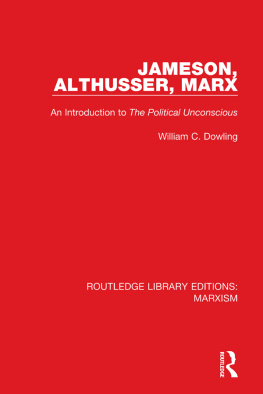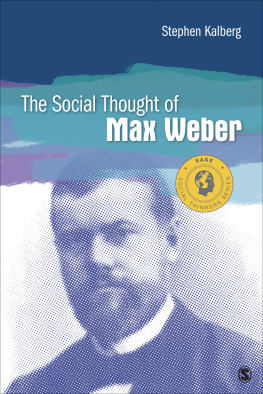EMBATTLED REASON
First published 1989 by Transaction Publisher
Published 2019 by Routledge
2 Park Square, Milton Park, Abingdon, Oxon OX14 4RN
52 Vanderbilt Avenue, New York, NY 10017
First issued in paperback 2019
Routledge is an imprint of the Taylor & Francis Group, an informa business
Copyright 1989 by Taylor & Francis
All rights reserved. No part of this book may be reprinted or reproduced or utilised in any form or by any electronic, mechanical, or other means, now known or hereafter invented, including photocopying and recording, or in any information storage or retrieval system, without permission in writing from the publishers.
Notice:
Product or corporate names may be trademarks or registered trademarks, and are used only for identification and explanation without intent to infringe.
Library of Congress Catalog Number: 86-24892
Library of Congress Cataloging-in-Publication Data
(Revised for volume II)
Bendix, Reinhard.
Embattled reason.
Selected essays published over a thirty-year period.
Revised second edition.
Includes bibliographies and index.
1. Sociology. 2. Social change. 3. Social structure.
4. Social history. 5. Knowledge, Sociology of. I. Title.
HM51.B394198830186-24892
ISBN 0-88738-110-3 (v. 1)
ISBN 0-88738-197-9 (v. 2)
ISBN 13: 978-1-138-50949-8 (pbk)
ISBN 13: 978-0-88738-197-3 (hbk)
The publication of Embattled Reason, Volume 2 gives me an opportunity to supplement the Preface and Acknowledgments of Volume 1.
Chapters 5 and 8 in Volume 1, and in Volume 2 are republished here with the permission of my coauthors Bennett Berger, John Bendix and my co-editor Guenther Roth, respectively.
Of the thirty chapters in these two volumes, two-thirds were written and/or published after the publication of Embattled Reason, First Edition (Oxford University Press, 1970).
Chapter 4 of Volume 1 was facilitated by Grant GS-31730X of the National Science Foundation at the Institute for Advanced Study, Princeton, New Jersey. of Volume 2 has benefited from the discussions during my year as a fellow at the Wissenschaftskolleg zu Berlin, 198788. These recent debts are gladly acknowledged, but since these essays extend over a thirty-year period, acknowledgments of any earlier assistance were rendered at the time.
PART I
Biographical
Volume I of these Selected Essays on Social Knowledge began with a discussion of the interests surrounding the quest for knowledge. To large masses of people the need for knowledge is not as evident as the need for food, clothing, and shelter. Probably most people want to benefit from applied knowledge, provided they know or learn how to obtain access to it. Their Though it may be self-evident, I would add that this truth is available only to those who ask the same questions and use the same framework of assumptions.
The questions we are interested in as scholars have a biographical side; we come to them because our upbringing and experience helped to shape our curiosity. Of course, people of different backgrounds may develop similar interests (for example because of their education), while people of similar backgrounds diverge in what appeals to their imaginations (for example because of their relations with their parents). So the biographical dimension is not a simple determinant of scholarly interests. But biography is not to be dismissed for that reason. In Chapters 1 through 5 in Volume 1, I have shown that we bring to the study of man and society not only specific questions but an image of basic priorities, a more or less articulated model of fundamentals, a definition of the real, i.e., of what matters most to us in the long run, often with the implicit conviction that other things matter less. Where these convictions become absolutes, as in Hegels The True is the Whole, claims of comprehending everything ensue, and dogmatism, even if insightful, replaces the search for knowledge. That search, by contrast, is ever approximate, depending as it does on the provision of concepts and judgments which are neither empirical reality nor reproductions of it but facilitate its analytic ordering in a valid manner (Max Weber). So conceived, the quest for knowledge does not claim to comprehend everything. Instead, it tries out various perspectives. Each of these is guided by models of fundamentals and will be persuasive only to those who share that view, an existential circularity for which we need not apologize. For these scholarly definitions of the real are provisional. They do not claim to understand the whole, and they can be discarded once their capacity to convince those who desire truth and approach the facts from the same angle of vision becomes exhausted by common if gradual consent.
To dismiss this proximate search for truth as relativism makes sense only from the metaphysical standpoint of those who believe they possess the whole truth. The rest of us are likely to see the perspectivism of the social sciences as an indication that the search for knowledge, even when successful, remains bounded by the limits of the human condition. These limits give rise to the many divergent approaches familiar to us from the history of the social sciences. I accept the view expressed by Leszek Kolakowski:
The law of the infinite cornucopiaapplies not only to philosophy but to all general theories in the human and social sciences: it states that there is never a shortage of arguments to support any doctrine you want to believe in for whatever reasons. These arguments, however, are not entirely barren. They have helped in elucidating the status questiones and in explaining why these questions matter.
In the social sciences the limits of human endeavor consist of the two conditions for the quest for knowledge I have mentioned: that truth exists only for those who value it, and that the people involved agree on the question to be asked and on some image of man and society whichto themmatters most in the long run. If, on these conditions, agreement cannot be reached, then further research is called for in order to resolve the remaining uncertainties. If this avails nothing, then the continuing lack of agreement probably derives from some divergence of underlying assumptions which has not yet been disclosed.
This is where the biographies of social scientists come in, though the relevance of personal history is often misunderstood. In the methodological sense of interest here, personal history does not pertain to the quest for knowledge itself. Since so many are interested in knowledge, the personal history of that interest has no bearing on the fact that the quest for knowledge continues. Likewise, personal history does not pertain to the validation of results which depend instead on standards of evidence and procedure, which ideally are devoid of personal feeling. Rather, personal history pertains to the questions a scholar asks and the model of fundamentals he finds congenial. Even here, as I have emphasized, personal history is at most a partial determinant of the scholarly process. Nevertheless, this personal component is of some importance in the social sciences, partly because schools of thought proliferate, partly because an idealized natural-science model makes social scientists very reluctant to own up to their personal preoccupations, and last but not least because scholarly disagreements are quite often due to the questions asked and the fundamentals assumed. The failure to fully articulate these questions and assumptions is the cause of many spurious disagreements, especially in the social sciences where the scholar is also part of the society he or she studies. Here more autobiographical candor would surely help. Such candor, if generally forthcoming, would make academic debates more productive.









